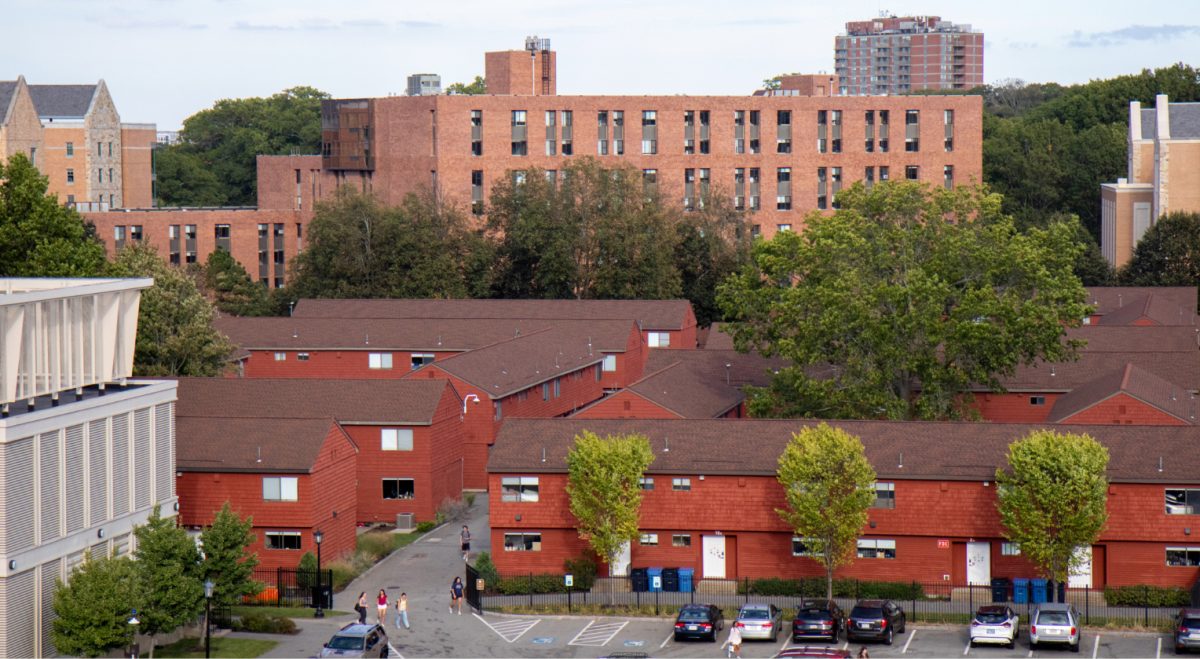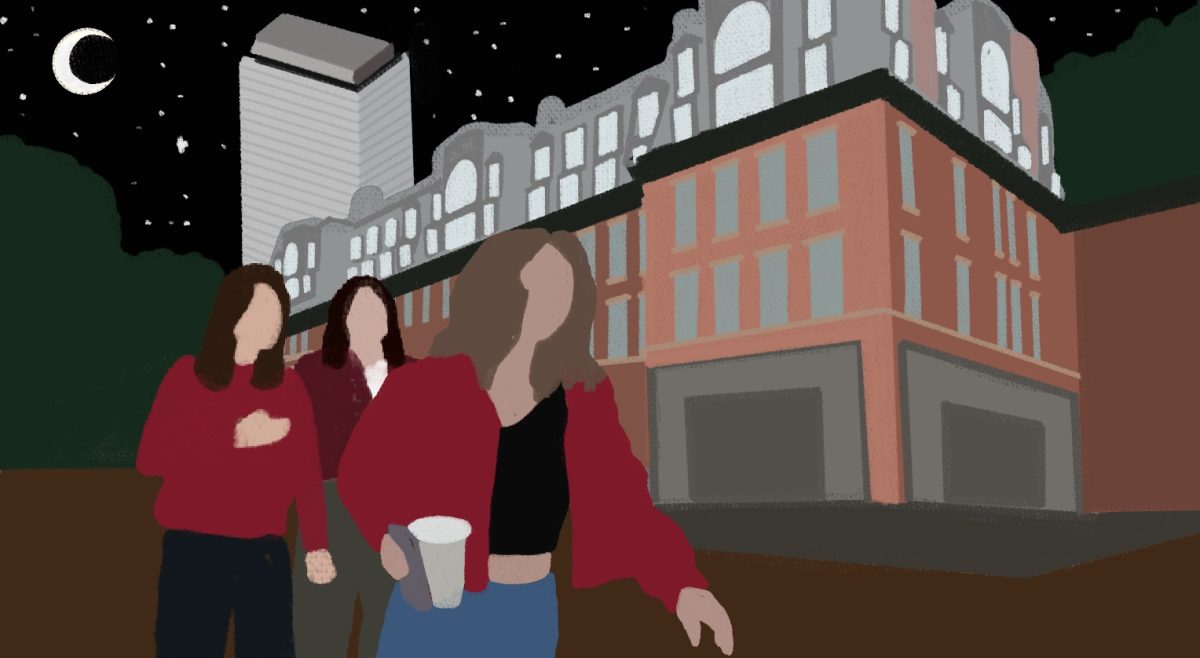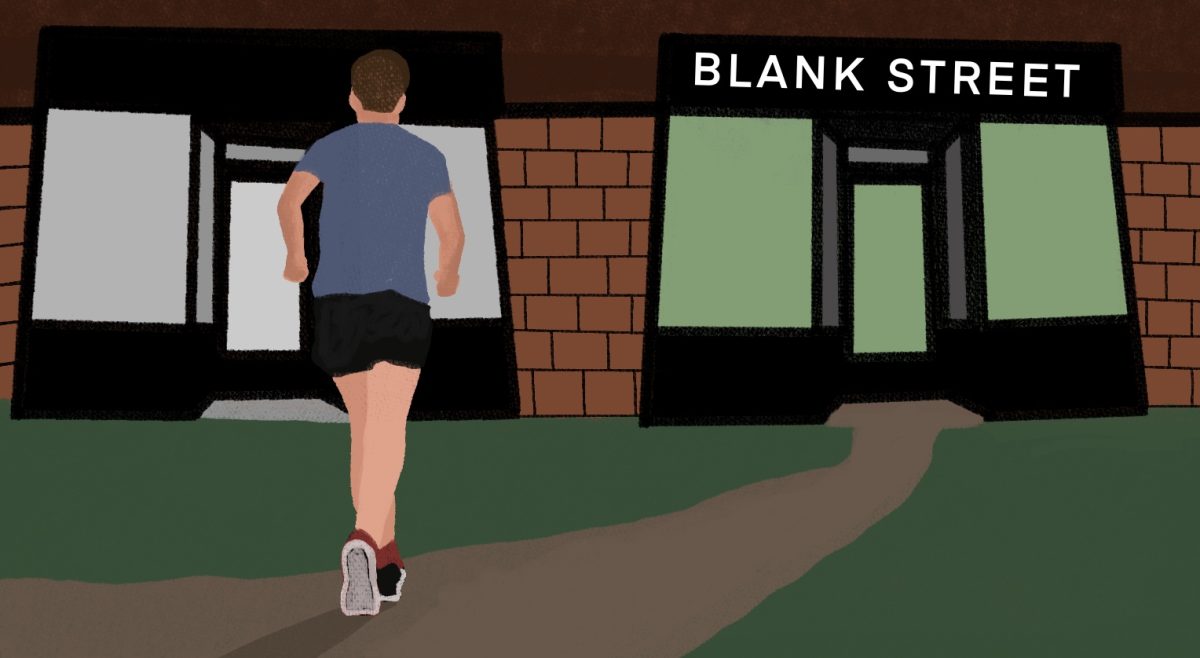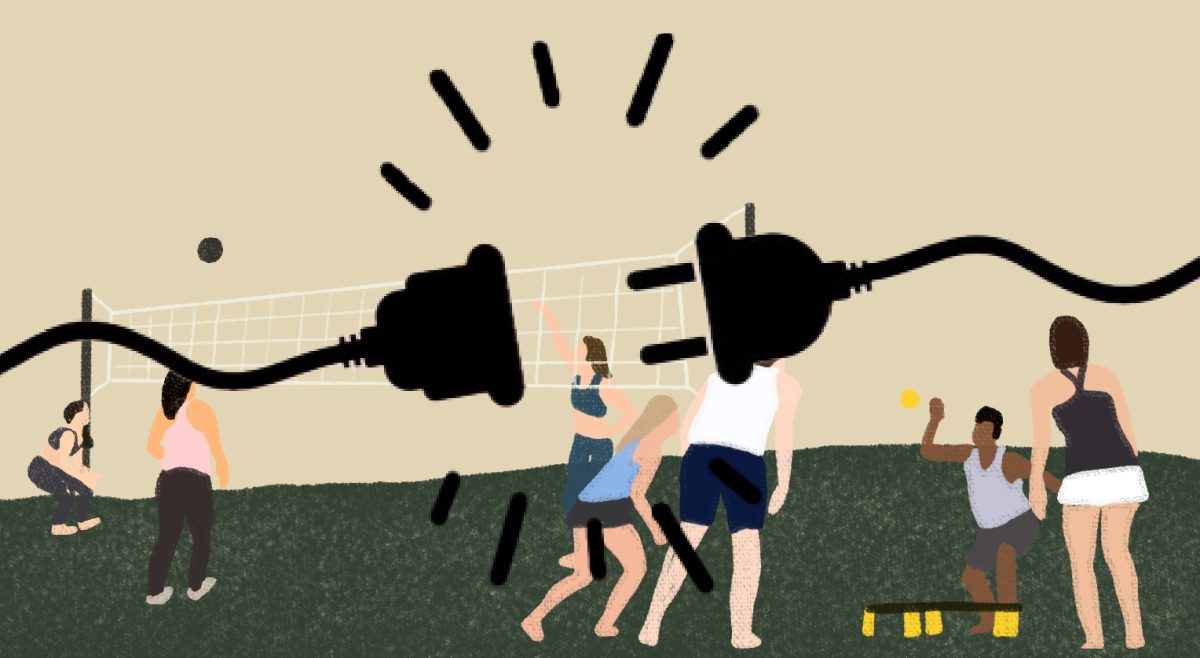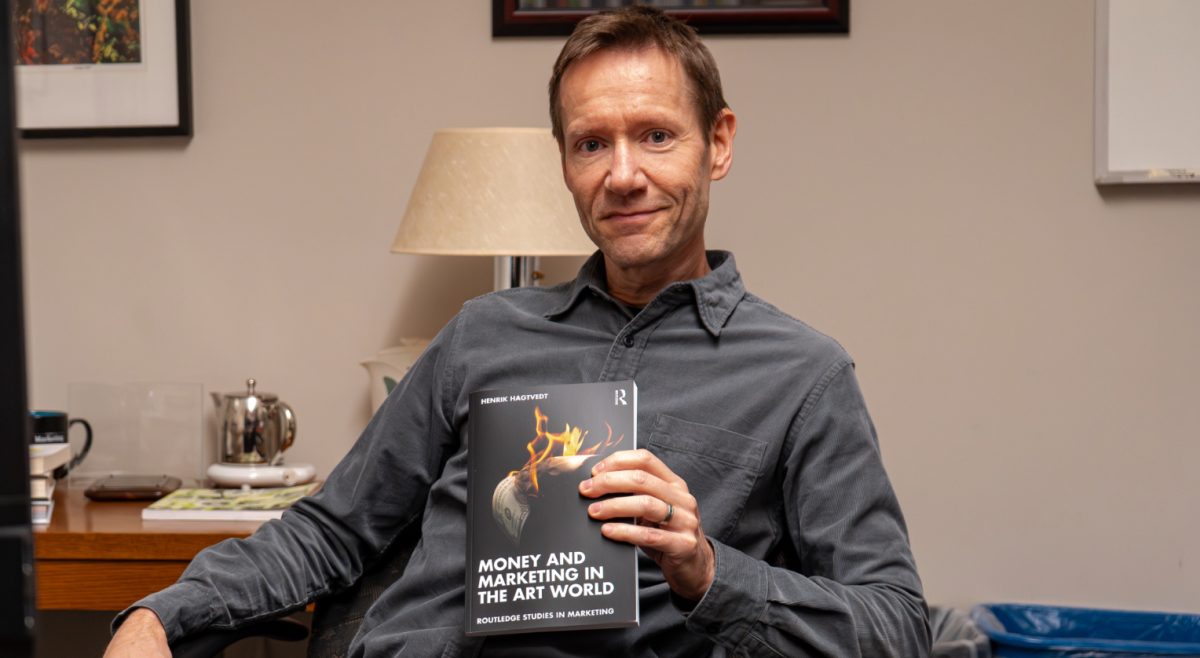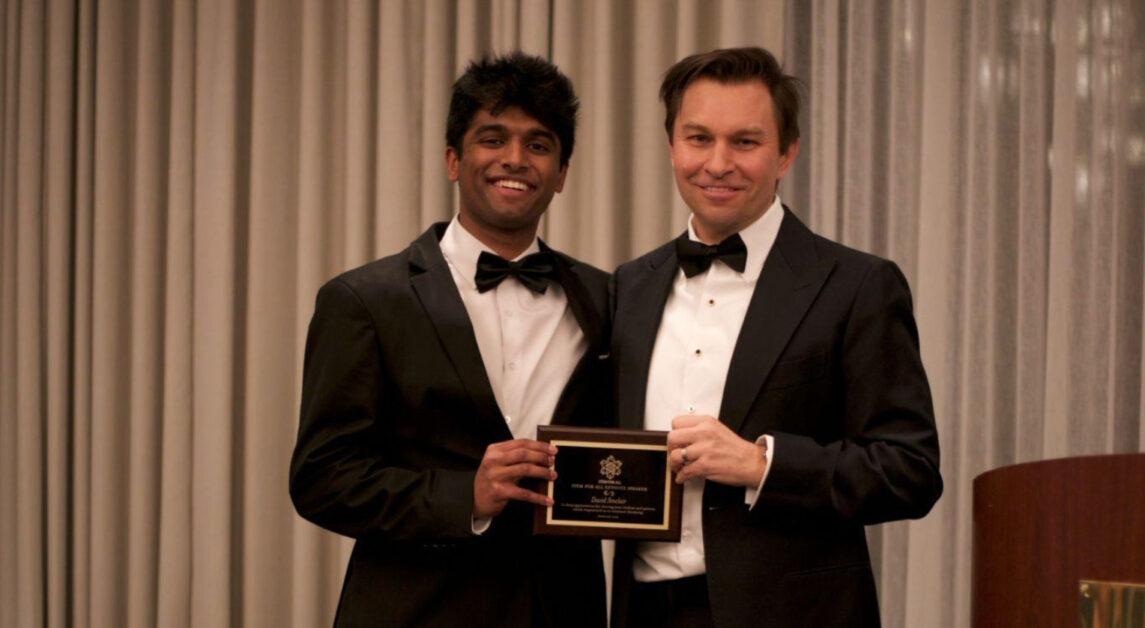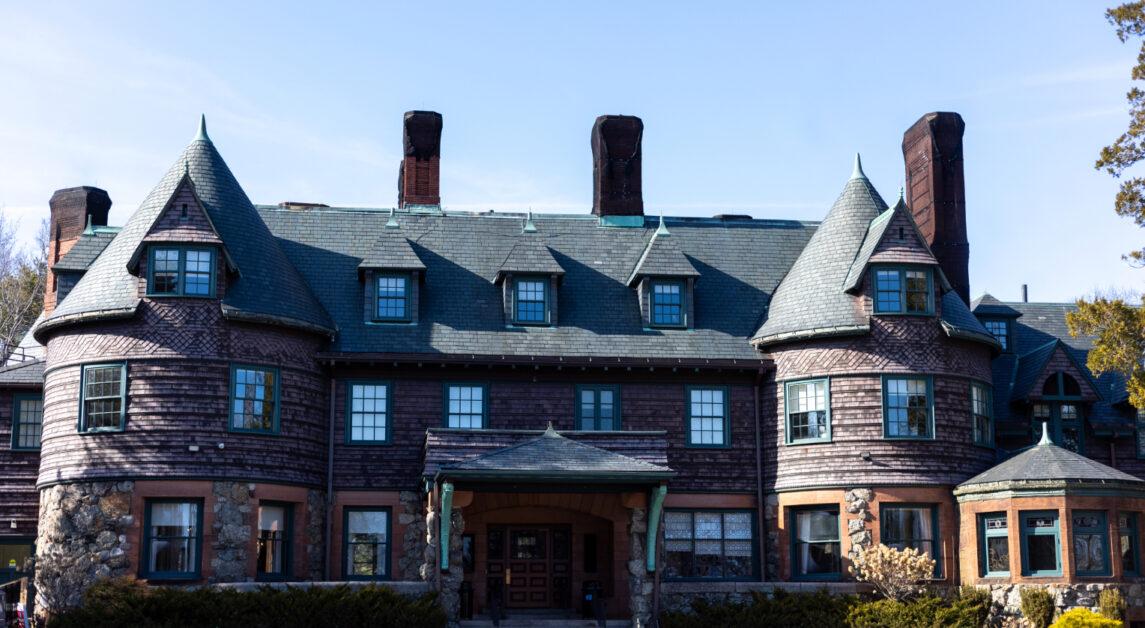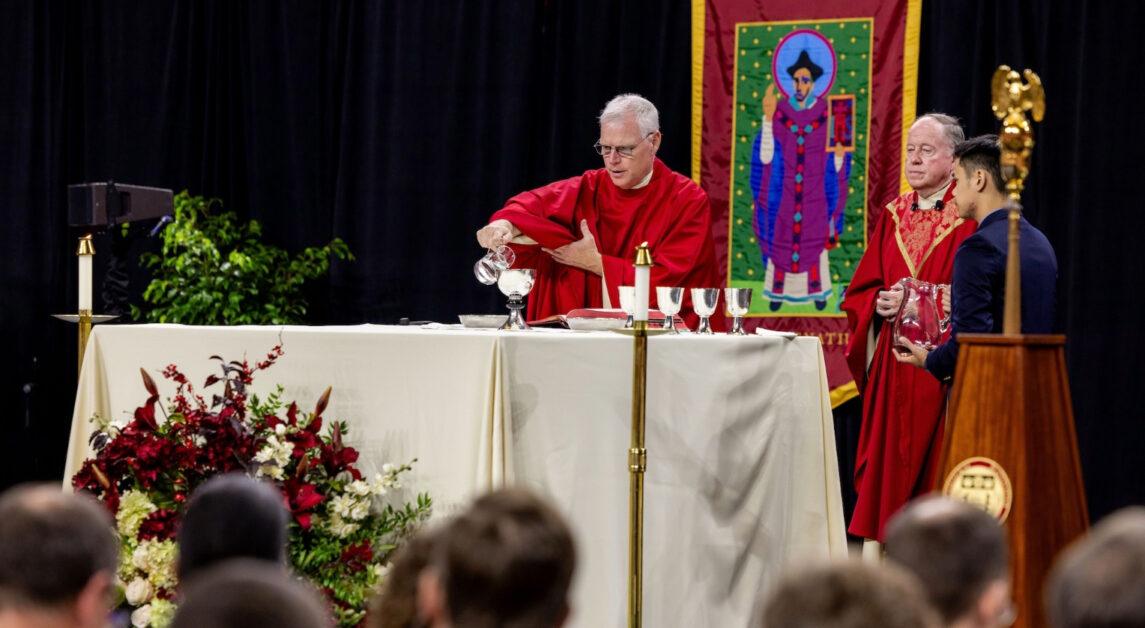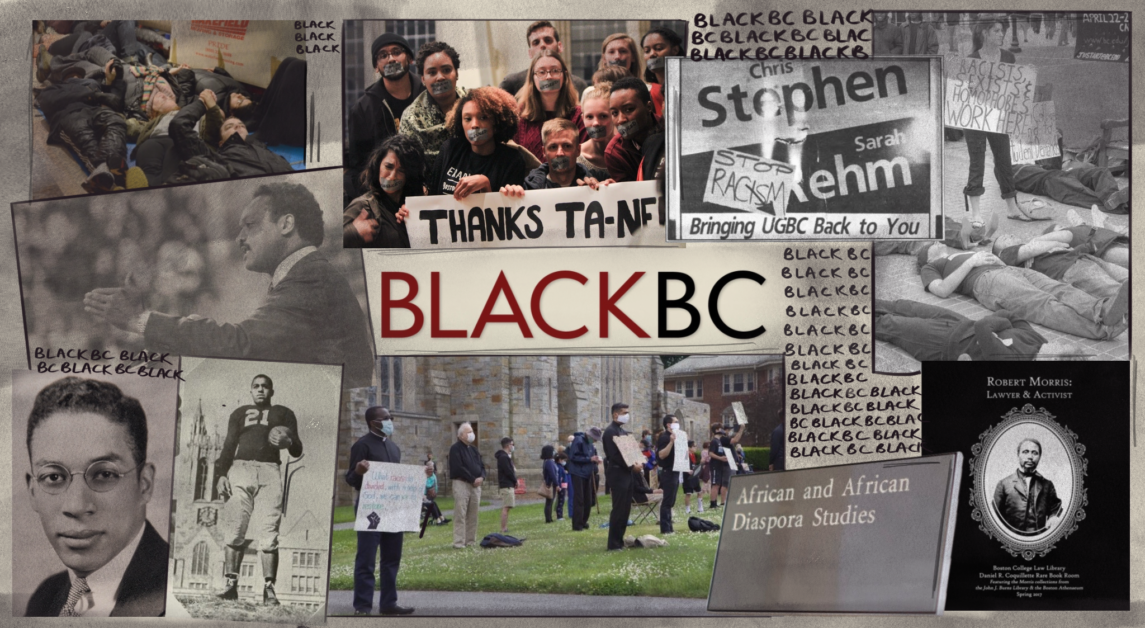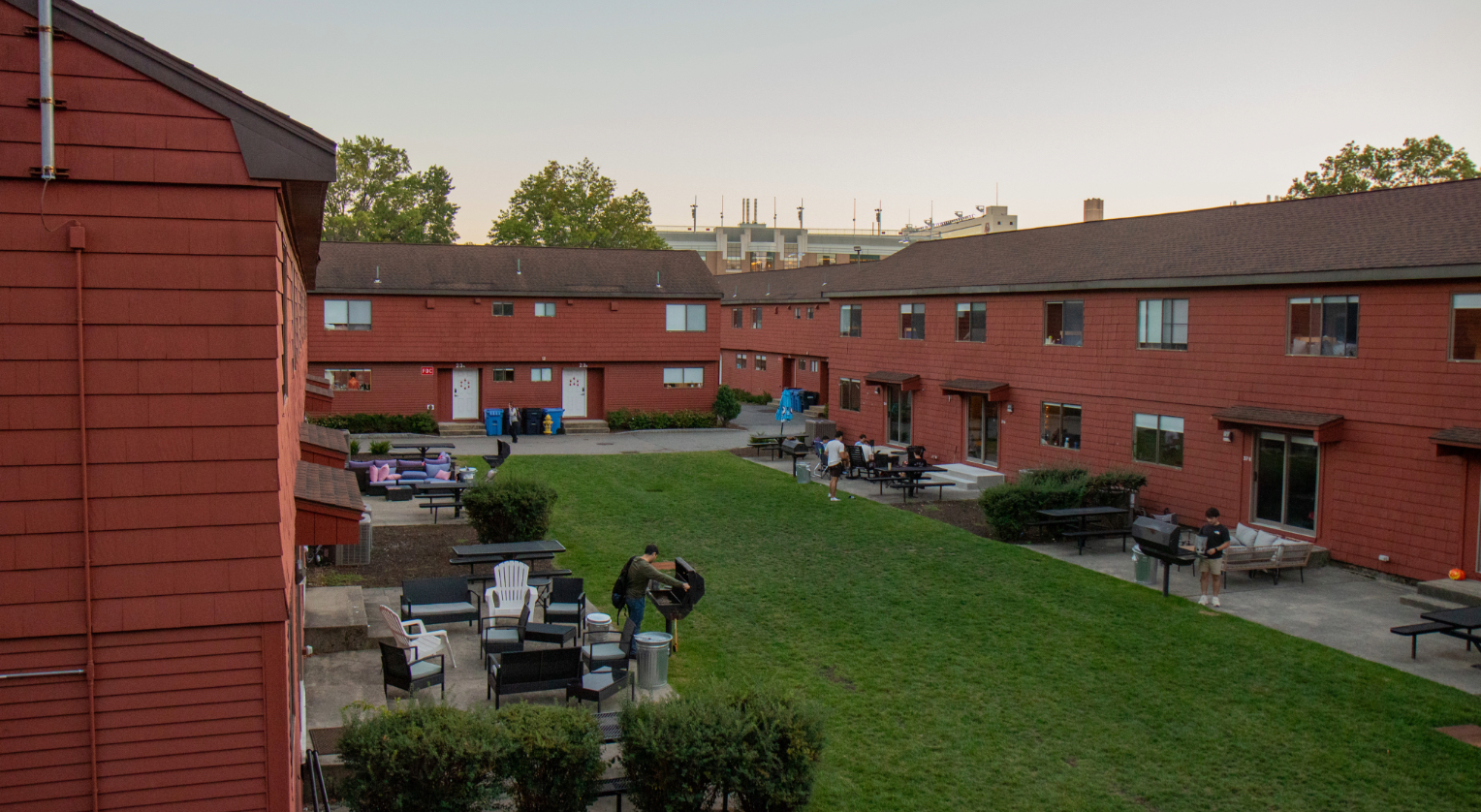
“The Holy Grail Of Partying”: The Evolution and Enduring Spirit of the Mods
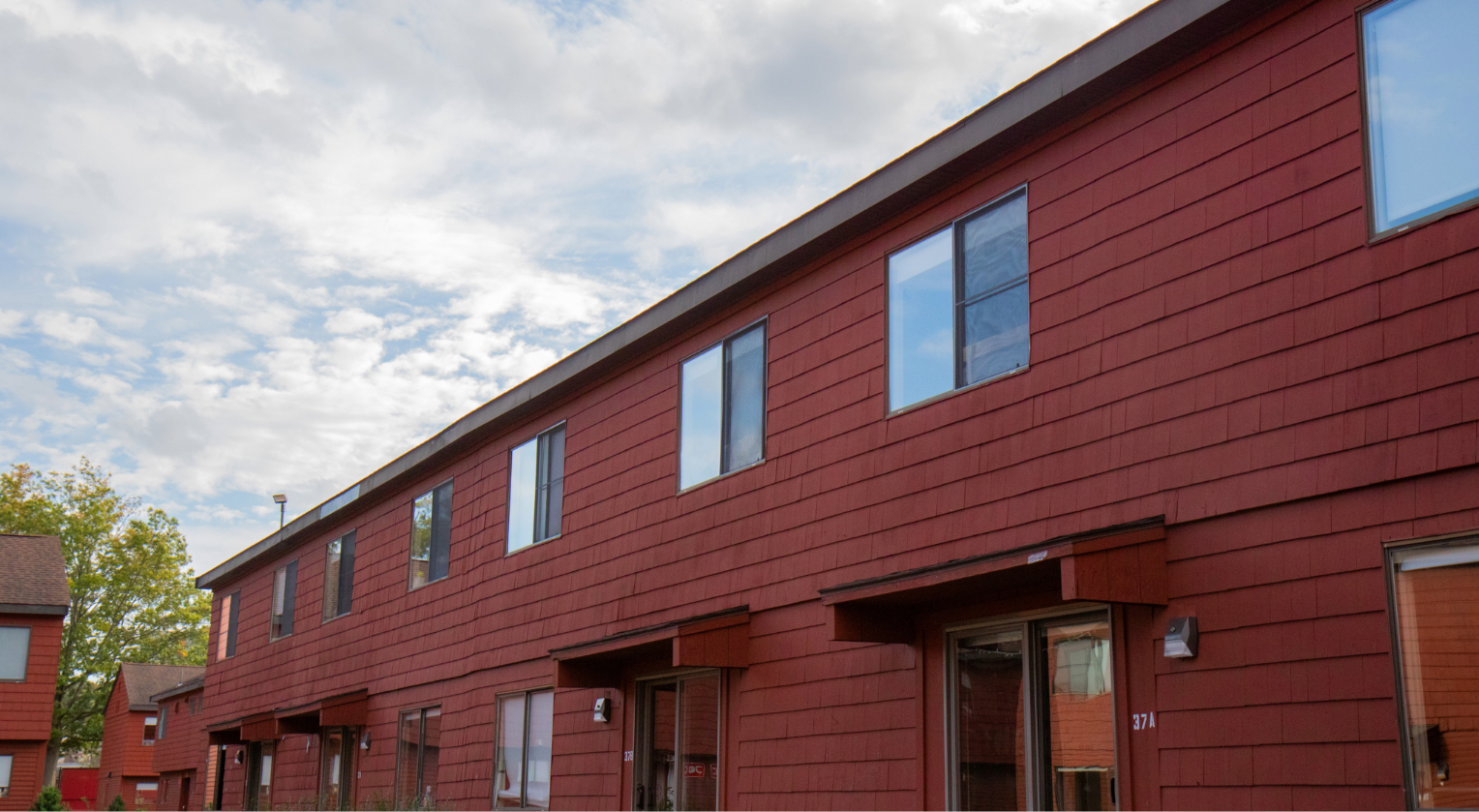
On a hot, spring night in 1981, Rich Canning’s roommate took a deep breath and plunged headfirst down a makeshift water slide on the stairs, landing on a kitchen floor piled high with sand.
“They filled the Mod one time,” recounted Rich’s daughter, Maddy Canning, BC ’23. “It was Love Boat–themed, I think, and they filled the entire bottom floor with sand. Somebody slid down the stairs on something like a water raft. Imagine pitching that to your roommates now—that would probably make news.”
Moments like these—absurd, chaotic, and distinctly communal—have long defined the Mods. Since their “temporary” installment in 1970, the maroon, pre-fab townhouses on Lower Campus have stood as both an architectural oddity and a cultural landmark at BC. But over the decades, the Mods’ wild reputation has collided with shifting student priorities and stricter University oversight.
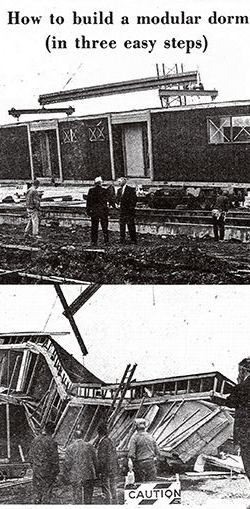
For Patrick Vale, BC ’13, the Mods represented something mythical, a place where the wildest dreams—and parties—could come true.
“I remember freshman year was always trying to get down into the Mods,” Vale said. “Like, ‘Do you know people who have a Mod? Can you get invited?’ It was kind of like the holy grail of partying.”
Older alumni paint a picture of an even looser era, less saddled by rules and regulations.
“I think we might have been a little more wild back in the day,” said Henry King, BC ’84, who laughed while recalling the days when students could leave Alumni Stadium at halftime, grab a few beers, and sneak them back in.
“Somebody once managed to sneak a whole keg into the parking garage under blankets,” King said.
Lauren Griffin, BC ’87, remembers her experience simply as an “excess period of time”.
“It was pretty wild,” Griffin said. “Like we weren’t like, ‘I’m never gonna study’, but it was pretty wild. We definitely went out every single Thursday night. We definitely could go out every single night of the week—every night on the weekends, we were out.”
Griffin’s time on the Heights was marked by the raising of the legal drinking age from 18 to 21. There was, however, little stopping students from drinking, she said.
“For my particular grade, half of us had to wait till we were 21 depending on when your birthday fell, and then half of the people were legal at 18,” Griffin said. “We were always working around it as a result.”
Despite the changing political atmosphere surrounding alcohol and the legal drinking age, Griffin said students treated rules more like suggestions during her time at BC.
“There was always a party. And I don’t know what the rules were, but it did seem like it wasn’t that hard to register,” Griffin said. “[The] last thing you needed to do is throw a charcuterie board together. It was very bare bones, it was like ‘we’re getting a keg and that’s [it].’”
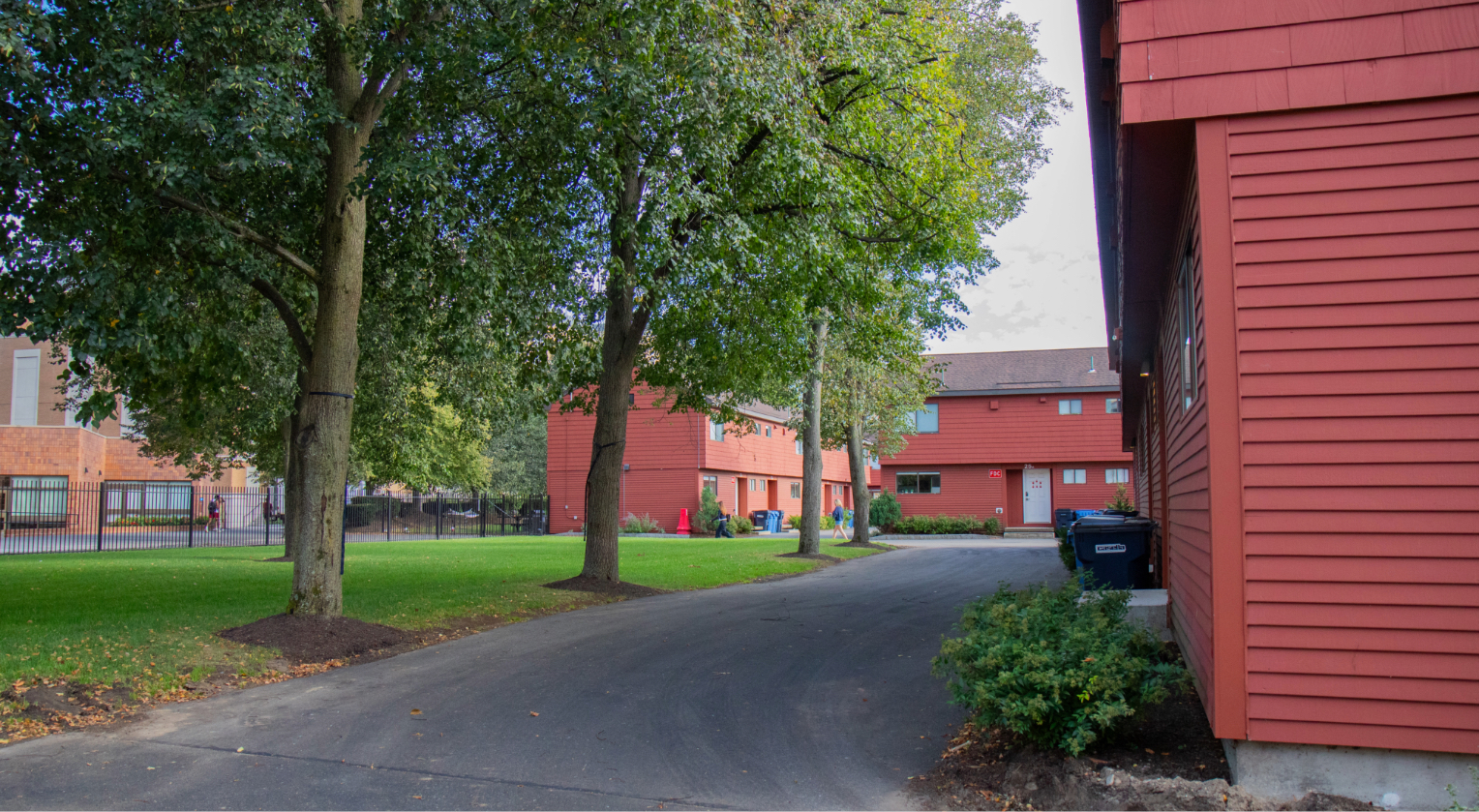
Today, kegs—prohibited in BC housing —are no longer a common sight, and the nights are quieter now, residents say, with many students choosing bars over backyard gatherings.
“It’s funny, because the mods have a reputation for hosting parties and things like that,” Regan said. “But honestly, a lot of my social activities on the weekends have been more aimed towards going out, rather than dorm parties or anything like that.”
Students living in apartment-style housing who plan to host parties with 25 or more guests on Friday or Saturday nights must register them with the Office of Residential Life, according to BC’s conditions for residency.
“All social gatherings of twenty-five (25) or more must be registered in advance by a Residential Life Official and only a limited number of social gatherings can be registered on a given night,” the conditions state.
Students are only eligible to host a party if at least half of their roommates are seniors 21 or older. Additionally, students must meet with their Resident Director to discuss their plan, and one student in the apartment must be a sober contact, according to the conditions for residency.
According to Molly Bardong, BC ’25 and a former 26A resident, party registration is comprehensive and exhausting.
“Every Monday at 9 a.m., a form opens to all the Mod residents for that upcoming weekend saying, ‘Submit your request if you want to host a party this weekend,’” Bardong said. “It’s a thorough form. You have to put all your roommates’ names, their Eagle IDs, the estimated amount of guests, the estimated amount of alcohol, and the estimated amount of food. It’s important to know that the amount of alcohol has to correlate to the amount of food.”
Despite the arduous process, Bardong believes it helps students keep peace of mind.
“It’s definitely different person to person, but I think it just shows how much BC cares about the well being of their students,” Bardong said.
Ask a dozen alumni whether the Mods were better “back then,” and you’ll get a dozen different answers.
“It was better then,” David Greene, BC ’13, said with a grin. “The teachers were there. The Jesuits were there. It was fun.”
Others, like Tony Fuller, BC ’94, don’t see much of a difference.
“Students today party plenty,” he said. “They definitely get their partying in.”
Despite varying opinions on the Mods’ heyday, students and alumni both recognize a cultural shift—one away from drinking and toward more structured social activity.
Stephanie Herrera, BC ’97, attributes this change to BC’s higher selectivity in incoming classes.
“I came [to BC] knowing what that experience could be,” Herrera said. “We went to the Mods, we were in the lots. We were out early in the morning every Saturday morning. But I think the student base is definitely of higher academic quality [today], and may not prioritize that as much as we did back in the day.”
Griffin points to mounting tuition fees and economic pressures as the cause.
“Tuition’s higher—stakes are higher,” Griffin said. “The growth of that puts a lot more pressure on the students to be like, ‘What am I going to do when I graduate?’ and there was less of that when I was there.”
Recent graduates also noted the proliferation of rules following the COVID-19 pandemic and the sharper penalties that now accompany them.
“I would say [the culture] has for sure changed, because even when I was a freshman and before Covid hit, the Mods would be a sprawling place at night, where even as a freshman, you could knock on a door, and then someone would be welcoming you in,” said Erin Miller, BC ‘24. “I think it’s like our disciplinary procedures [makes] people not want to make a mistake their senior year that could end up being on their profile ”
Vale’s experience in the early 2010s could not have been more different.
“I don’t remember it being like, a huge thing, to be honest,” Vale said. “Like, I never felt like it was very strict. I mean, even when I got written up, I probably should have been more nervous. It felt more like a slap on the wrist, like ‘You shouldn’t be doing that’, rather than [a fear] for, you know, my status as a student.”
For Miller, the shift toward stricter disciplinary action dampened the social experience.
“I had someone that was a family friend, and they were like, class of 2017, and they always talked about how crazy it was in the Mods and how it was a free for all,” Miller said. “And we just, like, definitely don’t have that nowadays. And of course, like, safety is first, but I think just like, the welcoming feeling isn’t as strong as the years have gone on.”
The ink on Maddy Canning’s arm still looks fresh. Her tattoo—“14B,” in honor of the location of her Mod—matches one on her father, who lived in the same Mod almost 40 years earlier. It rests under her sleeve, waiting to be flashed at the next BC tailgate.
“I was like, ‘If we got the same mod, we’d have to get matching tattoos.’” Canning said. “That’s how out of the realm of possibility it was for us that it was gonna happen.”
A lot has changed since Canning’s father’s time in the Modulars. But the almost charmingly out-of-place mini-neighborhood has long been the heart of BC’s social life, and both alumni and students alike hold a fondness for the boxy buildings.
“I actually found comfort in that, like, hearing people have fun, like, constantly right outside and that there was always something happening,” Canning said. “There’s no escaping it, so you better like that, but it’s kind of in the best way.”
“We wish we were there, because we just loved the people and you were with them, it didn’t matter what you were doing, right?” Griffin said. “Just always with people that you just loved, and the parties were great, but it’s the people you were with.”
Bardong echoed that sentiment.
“I found I would have a friend over, and they would look across the yard and be like, ‘You’re neighbors with my roommates from sophomore year!’ and then you’re waving more people over,” Bardong said. “That is the epitome, I think, of creating connections at BC.”



